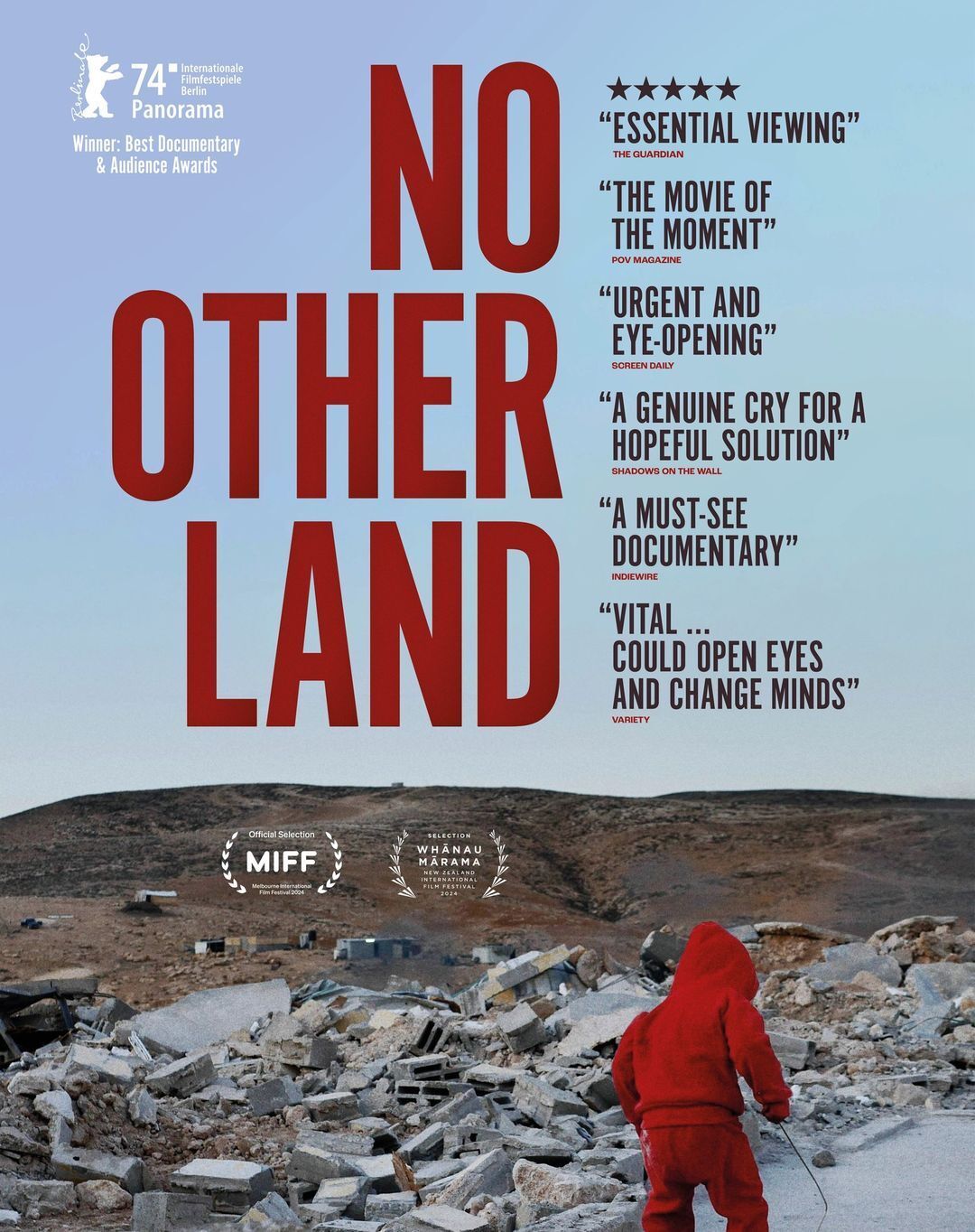
Hiba Kamal Abu Nada falleció en Jan Yunis, el 29 de octubre de 2023, víctima de un bombardeo de las tropas israelíes.
Esta joven poetisa, bioquímica, novelista, nutricionista y activista feminista perdió la vida solo veintidós días después de que Hamás provocara el caos en Oriente Medio, con el secuestro y asesinato de numerosos ciudadanos israelíes, de manera inesperada y sumamente brutal. Tal acción terrorista dio pie a la sangrienta y genocida respuesta del gobierno israelí comandado por Benjamin Netanyahu, que ya se ha cobrado cerca de 70.000 muertos en la franja de Gaza y otros territorios palestinos.
Desde entonces, la escalada de violencia y destrucción perpetrada por el ejecutivo de Tel Aviv hacia los gazatíes y cisjordanos ha generado una reacción lógica y humanitaria de rechazo internacional, lamentablemente no ratificada por la sanción institucional de los países más influyentes del globo terráqueo.
Al tiempo que Donald Trump (el actual presidente de USA) no reconoce públicamente la actividad salvaje y sistemática del gobierno de Israel, consistente en matar de hambre a los gazatíes y en disparar a ciudadanos desarmados cuando estos se acercan a los puestos de reparto de alimentos, el mundo calla o se queja con timidez. Esta respuesta casi silente, que evita reconocer abiertamente el genocidio desatado por Netanyahu y sus colaboradores, está permitiendo la aniquilación programada de miles de personas residentes en la franja que los extremistas israelíes quieren controlar de manera absoluta.
Fruto de esa política de cerrar los ojos frente a un crimen colectivo tan devastador como es el que está sucediendo en la franja de Gaza, cerca de setecientos escritores de Reino Unido y de la República de Irlanda, más trescientos narradores francófonos, hicieron pública una carta el pasado martes (el 29 de julio de 2025) en la que expresan la necesidad de frenar la inhumana actitud del gobierno de Tel Aviv con respecto a la población palestina.
Uno de los puntos más determinantes de la misiva estriba en la designación de lo que sucede en Gaza como genocidio. Los firmantes del emotivo texto no dudan en calificar la pesadilla de aniquilación desatada por Netanyahu con semejante y contundente palabra, que evitan pronunciar tanto la Casa Blanca como la Unión Europea, organismo que todavía no ha decidido siquiera revisar los acuerdos de asociación que los veintisiete mantienen con Israel.
Si se consulta la terminología del Derecho Internacional, genocidio es la intención de destruir total o parcialmente a un grupo nacional, étnico, racial o religioso. Una realidad que se asemeja mucho a lo que acontece diariamente en Gaza. Esta prueba empírica lleva a los firmantes a calificar la situación como de genocida.

Ante la habitual represalia diplomática del ejecutivo israelí, consistente en calificar de antisemita cualquier signo de apoyo humano e institucional a la población palestina, la carta de los intelectuales anglófonos y francófonos también condena los crímenes y los secuestros perpetrados por Hamás. Unas acciones que, no obstante, no son excusa para desatar la muerte generalizada entre todos los gazatíes; ya que la tesis de la autodefensa ya está totalmente superada por la crueldad desplegada por las tropas de Netanyahu, contra los civiles que viven en la franja.
HIBA KAMAL ABU NADA PROPONÍA EN SU POEMA UN LUGAR IMAGINARIO DONDE LOS PALESTINOS NO FUERAN ANIQUILADOS
La carta de los casi 700 escritores británicos e irlandeses echa pública el pasado martes tiene en el poema A Star Said Yesterday, de la creadora palestina Hiba Kamal Abu Nada, la espina dorsal de las demandas humanitarias que esgrimen narradores tan populares como Ian McEwan, Ian Kershaw o Irvine Welsh. Iniciativa a la que se han sumado trescientos autores francófonos, de la talla de Annie Ermaux, Eric Vuillard y Jean-Marie Gustave Le Clezio, entre otros.
“Y si un día/ todas las galaxias del universo/ no tuvieran más sitio para nosotros/ tú podrías decir/ entrad en mi corazón/allí estaréis finalmente seguros/“. Estos simples versos, moldeados más con la tristeza de los destinos crueles e inhumanos que con la visión de una ayuda que no llega, conforman el esqueleto dramático de una misiva necesaria y digna. Un texto que condena igualmente las acciones de Hamás, pero que no duda en reclamar la acción mundial contra el genocidio indiscriminado y supremacista orquestado por Netanyahu y sus seguidores de la extrema derecha israelí.

Tras más de 65.000 palestinos asesinados por las fuerzas israelíes, cerca de doscientas personas fallecidas por la falta de alimentos en la franja de Gaza, cincuenta rehenes israelíes aún en manos de Hamás y más del noventa por ciento de los edificios de Gaza reducidos a escombros; el clamor popular ha germinado incluso entre los habitantes de Israel, que se rebelan contra la matanza sistemática promulgada por el gobierno de Tel Aviv.
La carta de los intelectuales de Reino Unido, de la República de Irlanda y de distintos autores de habla francesa no acepta la violencia de ningún bando; ya que recalca el “rechazo de cualquier ataque o expresión de odio y violencia contra palestinos, israelíes o judíos“. Una postura que choca contra las teorías supremacistas e inmisericordes de los que defienden la legitimación del Estado de Israel, consistente -según ellos- en disponer a su antojo del uso de la fuerza contra los que considera “sus enemigos”.
Ante situaciones tan urgentes y trágicas como la que sufren los habitantes de Gaza, hay que romper el silencio cómplice. En esa realidad tan infernal, es necesario despertar la conciencia sensible de los poderosos, para evitar que el apocalipsis vuelva a asentarse en el mundo, como ya lo hizo ocho décadas atrás con el Tercer Reich.
Reproducción de la carta original firmada por numerosos escritores británicos y de la República de Irlanda:
Writers Demand Immediate Gaza Ceasefire
We, the undersigned writers of England, Wales, Scotland, Northern Ireland and the Republic of Ireland, ask our nations and the peoples of the world to join us in ending our collective silence and inaction in the face of horror.
A year and seven months ago, the Palestinian poet Hiba Abu Nada was killed by Israeli airstrikes. In her poem “A Star Said Yesterday,” she imagined for the people of Gaza a cosmic refuge — something utterly unlike the constant lethal danger they now face:
“And if one day, O Light
All the galaxies
Of the entire universe
Had no more room for us
You would say: “Enter my heart,
There you will finally be safe.”
The government of Israel has renewed its assault on Gaza with unrestrained brutality. Public statements by Israeli ministers Bezalel Smotrich and Itamar Ben Gvir openly express genocidal intentions. The use of the words “genocide” or “acts of genocide” to describe what is happening in Gaza is no longer debated by international legal experts or human rights organizations. Amnesty International, Médecins Sans Frontières, Human Rights Watch, the International Federation for Human Rights, the United Nations Human Rights Council, and many other specialists and historians have clearly identified genocide or acts of genocide in Gaza, enacted by the Israel Defence Force and directed by the government of Israel.
On behalf of the UN, and published by the office for the High Commissioner for Human Rights, over 40 Special Rapporteurs and independent experts recently concluded: “While States debate terminology — is it or is it not genocide? — Israel continues its relentless destruction of life in Gaza, through attacks by land, air and sea, displacing and massacring the surviving population with impunity,” the experts said. “No one is spared — not the children, persons with disabilities, nursing mothers, journalists, health professionals, aid workers, or hostages. Since breaking the ceasefire, Israel has killed hundreds of Palestinians, many daily — peaking on 18 March 2025 with 600 casualties in 24 hours, 400 of whom were children.”
Palestinians are not the abstract victims of an abstract war. Too often, words have been used to justify the unjustifiable, deny the undeniable, defend the indefensible. Too often, too, the right words — the ones that mattered — have been eradicated, along with those who might have written them.
The term “genocide” is not a slogan. It carries legal, political, and moral responsibilities. Just as it is true to call the atrocities committed by Hamas against innocent civilians on 7 October 2023 crimes of war and crimes against humanity, so today it is true to name the attack on the people of Gaza an atrocity of genocide, with crimes of war and crimes against humanity, committed daily by the Israeli Defence Forces, at the command of the government of the State of Israel.
Recently, Alexis Deswaef, vice-president of International Federation of Human Rights and a lawyer at the International Criminal Court, recalled the concept of the “bystander-approver,” drawn from the special tribunal for the former Yugoslavia. It refers to a senior official who looks on, remains silent, and whose silence is interpreted as a green light by the perpetrators.
We refuse to be a public of bystander-approvers. This is not only about our common humanity and all human rights; this is about our moral fitness as the writers of our time, which diminishes with every day we refuse to speak out and denounce this crime.
In taking this stand, we assert without reservation our absolute opposition to and loathing of antisemitism, of anti-Jewish and anti-Israeli prejudice. We reject and abhor attacks, hate and violence — in writing, speech and action — against Palestinian, Israeli, and Jewish people in all and any form. We stand in solidarity with the resistance of Palestinian, Jewish, and Israeli people to the genocidal policies of the current Israeli government.
We ask all people to join in our call for compassion, for reason and for mediation. For Hiba, for the nearly 54,000 Gazans killed, and for the survivors — starving, wounded, and scarred for life:
- We demand the immediate unrestricted distribution of food and medical aid throughout Gaza by the UN.
- We demand that sanctions be imposed on the State of Israel if the Israeli government does not heed this call, which is also the world’s call, for an immediate ceasefire.
- We demand a ceasefire which guarantees safety and justice for all Palestinians, the release of all Israeli hostages, and the release of the thousands of Palestinian prisoners arbitrarily held in Israeli jails.
This genocide implicates us all. We bear witness to the crimes of genocide, and we refuse to approve them by our silence.
